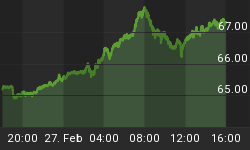Liquidity levels ... they are important in companies, banks, AND the stock market.
Think about it ... when Liquidity levels rise, it means that there is more cash coming into a company and that means they can expand, hire more people, invest in machinery and so on.
In the stock market, rising liquidity means that there is more money chasing stocks and that means rising prices. When net liquidity is in contraction, then there is often not enough money to purchase the stocks many want to sell. When that happens, investors have to lower their price to get a buyer and the stock market falls.
Sometimes, like now, the Liquidity levels are in Expansion territory but decreasing. (Today's chart is presented as a courtesy to our free members and is posted daily on our paid subscriber site.) If you look at today's Long Term Liquidity Flow chart, you can see that the inflowing liquidity went into a trading range from May to June.
And then, in mid-June, it broke the trading range's lower support. You know the definition of a down trend ... a down trend has lower/highs and lower/lows. Since mid-June, the inflowing liquidity has been making lower/highs and lower/lows.
If this continues, the market will continue to sputter and lose steam. It will take a revival of increasing liquidity to send the market back up in an enthusiastic rally mode.
















